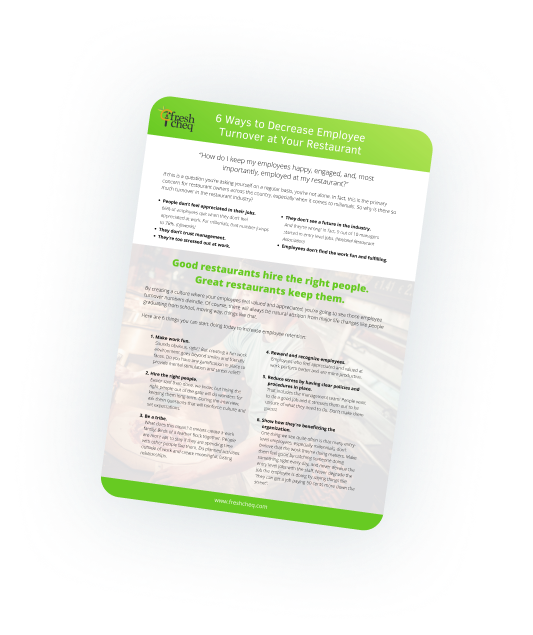Has your restaurant ever faced a food poisoning allegation?
Your first instinct might have been something like, “No way, you’re wrong, you must have gotten sick from something else.”
But is that the way to go?
The truth is, it happens to every restaurant and no matter how many steps you take to avoid it, the allegations are going to come at some point or another. Hopefully, they’re mostly unsubstantiated claims.
When it happens, there are definitely some processes that you want to follow to make sure that you're handling the situation correctly. So before you even get into any situation like this, make sure that you keep good reporting of your food safety logs. It will not only help you in this situation, but it will help you with a standard health inspection or a franchise audit if you’re part of a franchise.
If an accusation comes, you’ll need to be able to show the auditors or inspectors that you did everything by the book. If nothing else, it'll show that you have a record of your food being handled properly, which will, of course, help your case.
How to Handle the Situation
If someone comes in and says they got sick in your restaurant, start by getting as much information as possible from them, including:
- When did they eat at your restaurant?
- What did they eat?
- How long after eating did they get sick?
- What were their symptoms?
Be friendly. Say you're sorry that this happened, but without admitting guilt. Be sincere and let them know you’re going to do what you can to help them.
It’s okay to be transparent with the customer and say something like, “I'm sorry you feel sick. I'm taking this very seriously. Just so you know, we served a hundred buckets of chicken that day and this is the first we've heard of it. We're going to take it very seriously and look into it.”
You’ll definitely want to contact your insurance agent and if you're part of a franchise, keep them in the loop of what’s going on.
Don't panic. This happens to every restaurant owner at least once a year. Stay calm, run through the questions, and never argue with the customer or be confrontational. They might be upset and they obviously aren’t feeling well, but all you want to do at this point is to collect information from them and figure out the next steps.
Be upfront and ask them what are they looking to get out of the situation? What's the ideal resolution? Don't sweep it under the rug as soon as they leave and hope it'll go away. It will not help your reputation if you promise to follow up with them and never do.
If it is proven that it was your fault, don't make excuses. Own up to it. Apologize. And strive to be better. At the end of the day, we’re all people, and mistakes happen. What matters the most is how we handle it.




